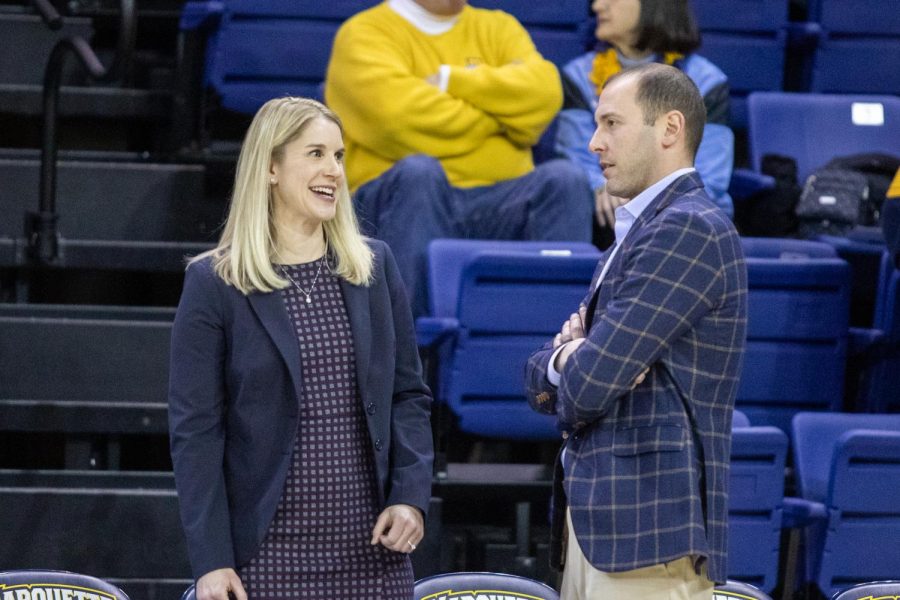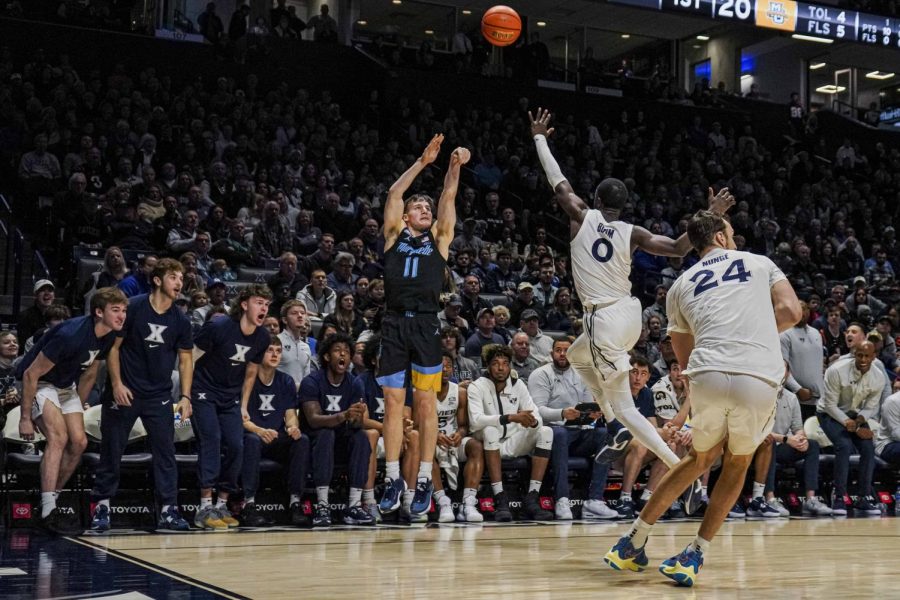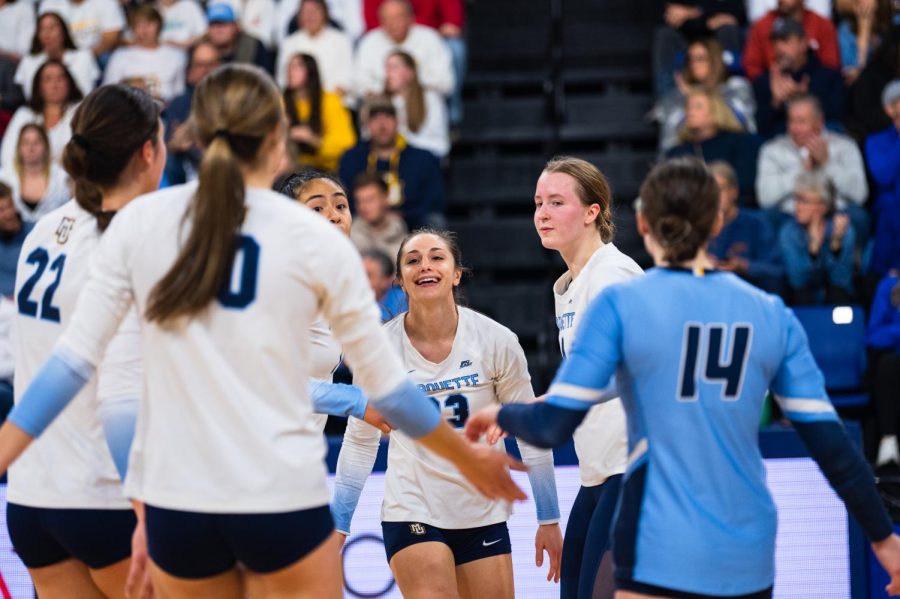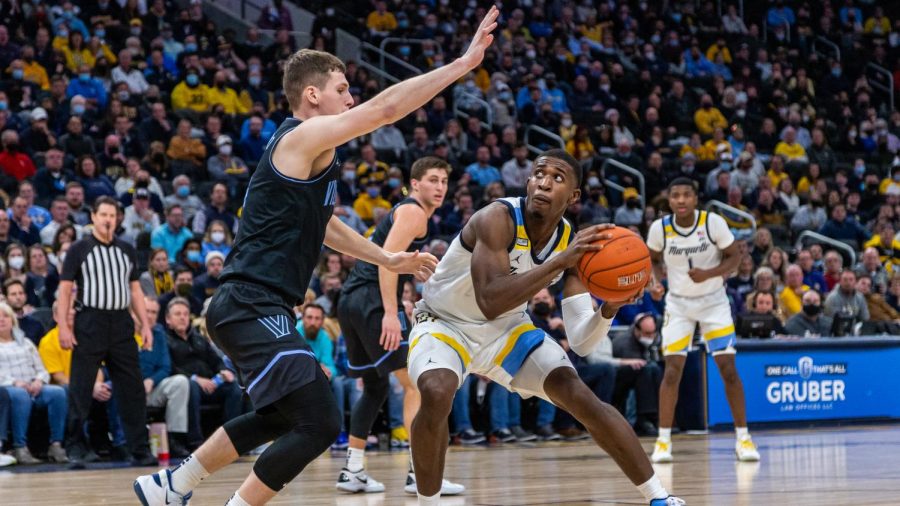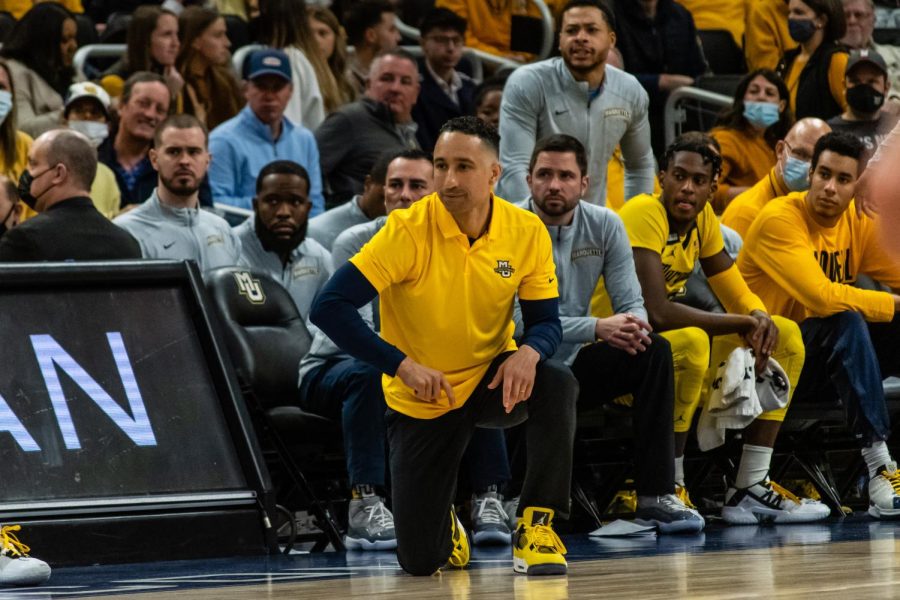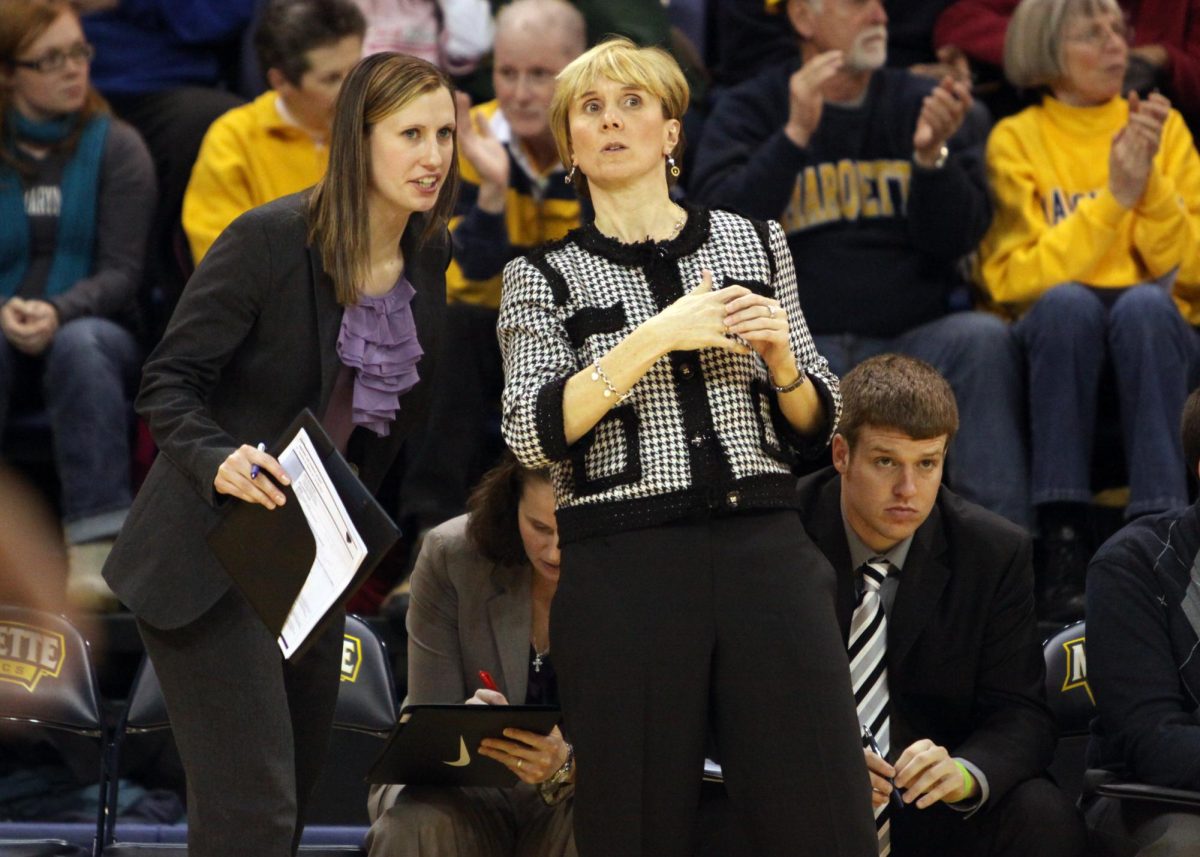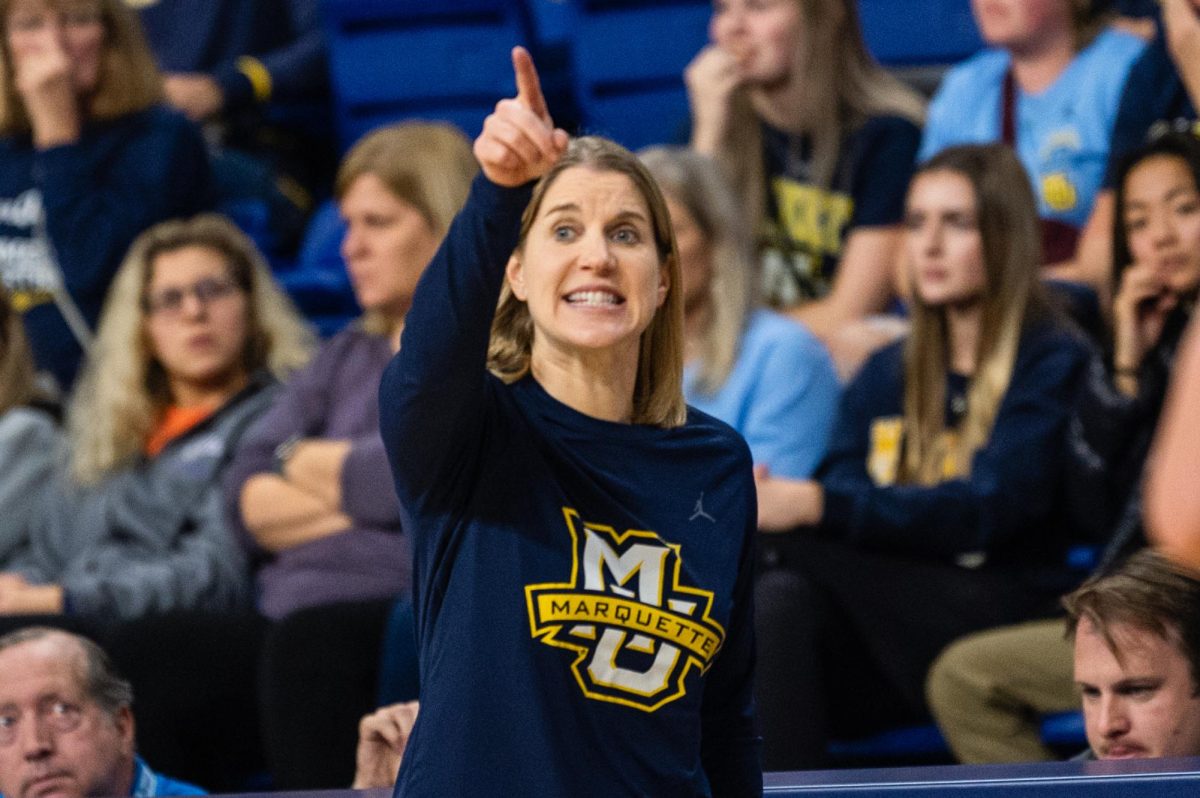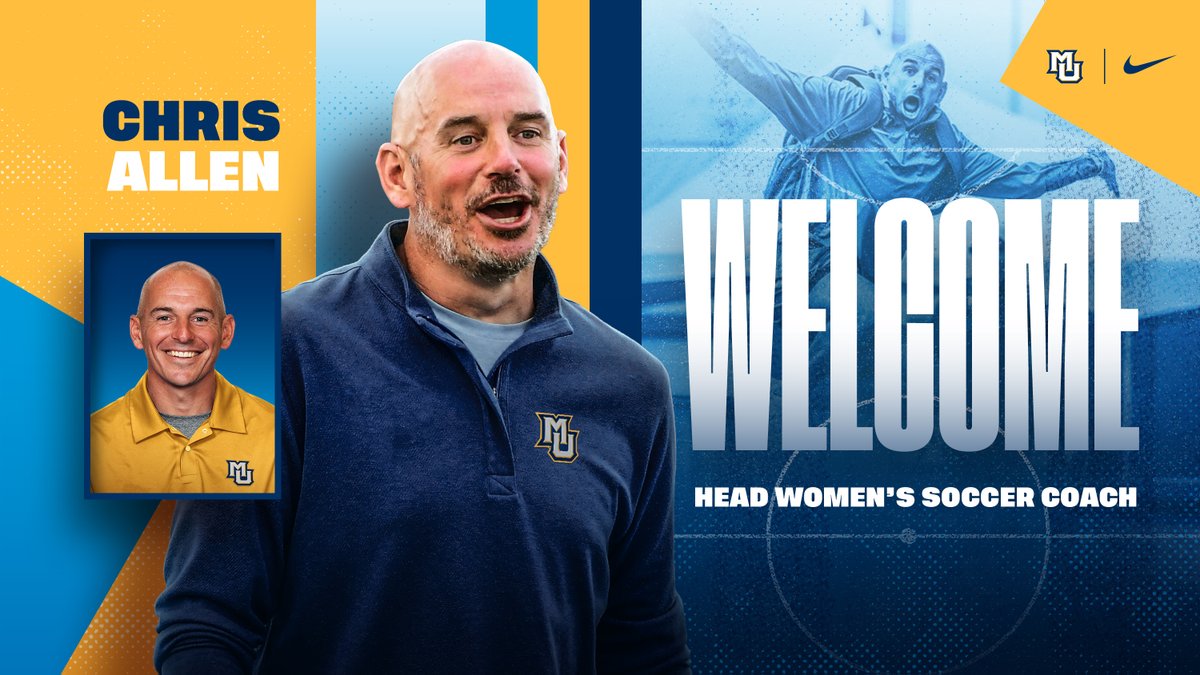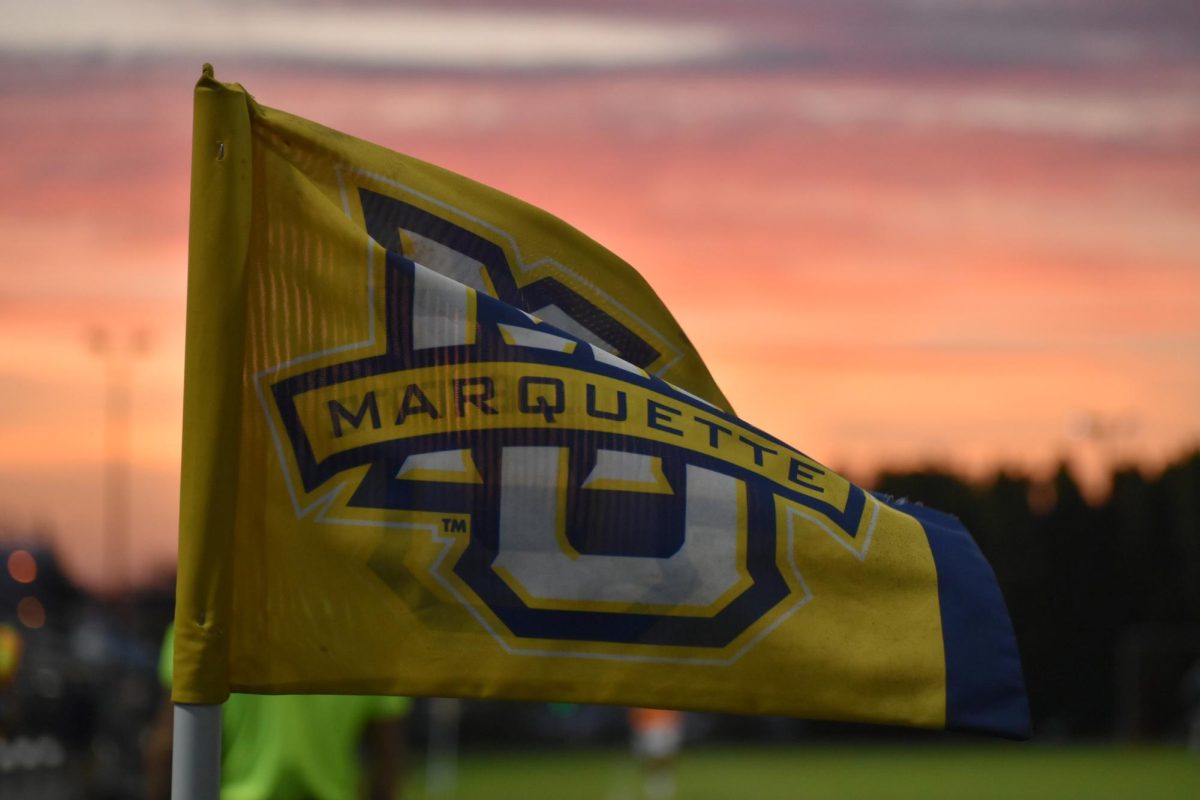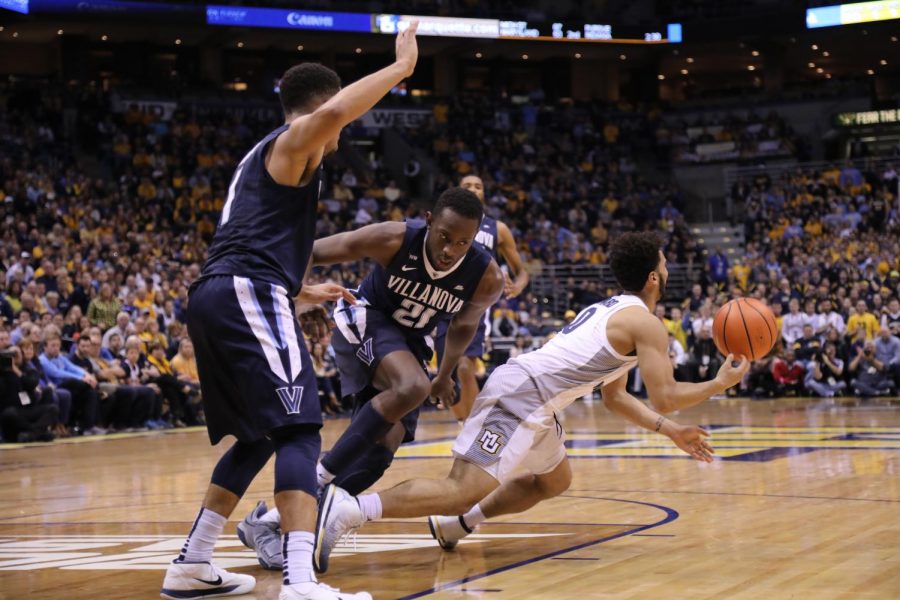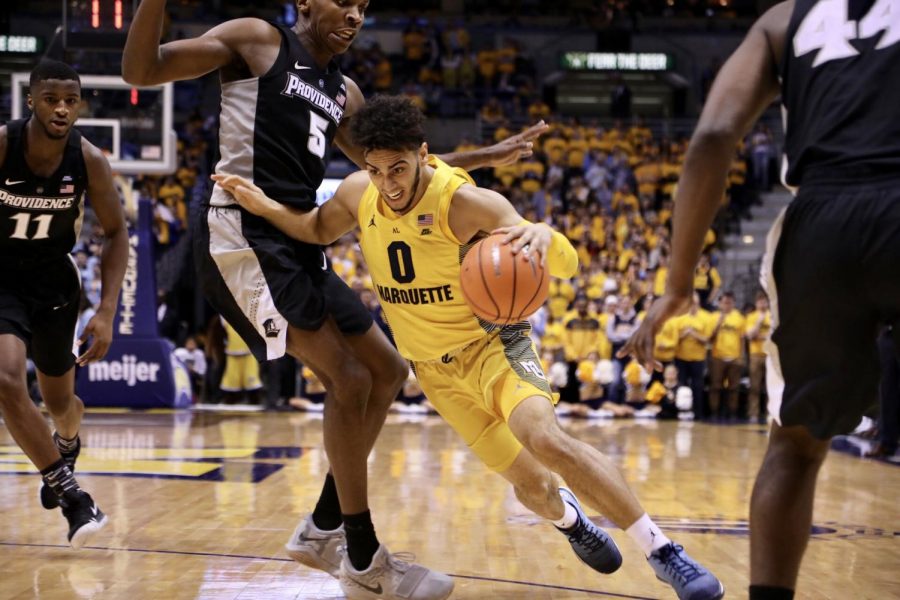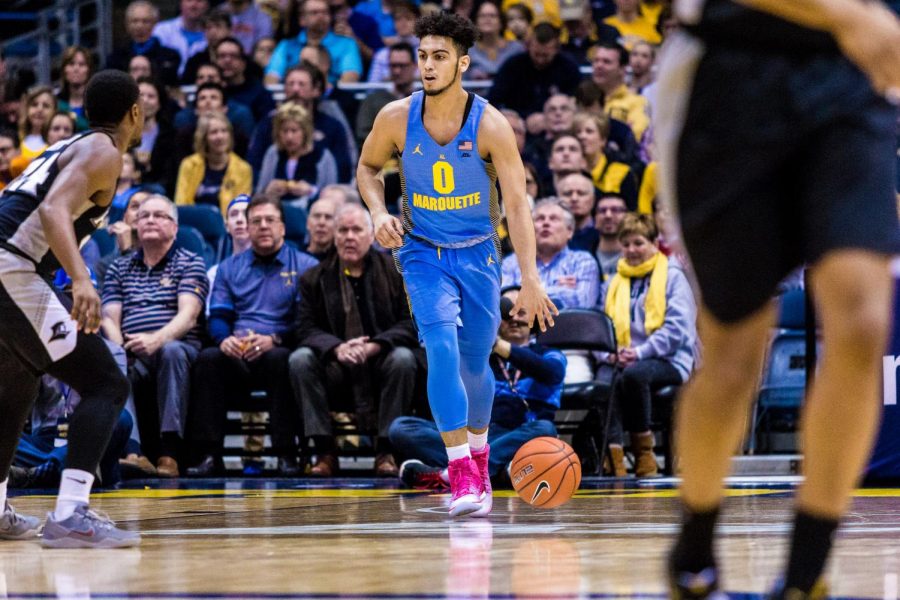The head coaching position across Marquette athletic teams is filled by personnel with relatively similar characteristics. Men’s basketball, men’s golf, men’s lacrosse, men’s soccer and volleyball all have white, male head coaches. The directors of men’s and women’s tennis and track and field/cross country also fit the same profile.
The only head coaches that stray away from the norm are women’s basketball head coach Megan Duffy, women’s lacrosse head coach Meredith Black and women’s soccer head coach Frank Pelaez. Duffy and Black are the only female head coaches, while Pelaez is a native of Cartagena, Colombia. Duffy and Pelaez are recent hires, as both stepped into head coaching roles in 2019.
The head coaching trends are not just a product of the present, but have appeared in the past as well.
Men’s basketball has had 17 head coaches dating back to the 1916-17 season, none of whom have been women or people of color. Men’s soccer has had three coaches since the 1982 season, and all have been white males. Despite being a women’s team, Marquette volleyball has not had a female head coach since Pati Rolf in 2008.
Athletic director Bill Scholl said a lot goes into the hiring process to ensure that the right candidate is selected for a head coaching position.
“We start with a list of defining or describing what the right candidate would look like,” Scholl said. “Things like a great fit at Marquette, a great compliance background, certainly a good win-loss record if they’re a head coach, or you know, all the right coaching experience.”
Search firms can also aid with the process to hire a head coach. Scholl said Marquette also typically works through a committee made up of athletics department personnel and other key decision makers. Student-athletes on a given team are also involved in the search. While they are not necessarily part of the committee, Scholl still meets with them to let them know how the search is progressing.
Scholl said diversity is something that Marquette is always looking for during the hiring process.
While the majority of Marquette’s head coaches are white men, coach Black and coach Duffy have not only been able to bring a new perspective to their teams, but have also served as great mentors to look up to.
“I’m always struck by how often – when there’s a woman head coach of a women’s team – in exit interviews I’ll hear from the student-athletes what incredible role models those coaches are,” Scholl said. “And that certainly fits with both Meredith and Megan. I’m not sure that’s something you necessarily get if you have a male coaching a women’s team.”
The lack of head coaching diversity is not only evident at Marquette, but also throughout the BIG EAST as a whole. Securing a head coaching position as a person of color has been especially hard. Marquette is one of five schools in the conference with no Black head coaches. The other four schools are Creighton, Xavier, Villanova, and UCONN.
Among these five schools there are 88 athletic programs, none of which have a black head coach. In a Women’s Basketball Coaches Association webinar hosted by ESPN’s LaChina Robinson on Aug. 20, Providence men’s basketball head coach Ed Cooley talked about his journey prior to his coaching days.
“I’ve had a lot of practice being one of very few minorities in situations. I went to college where I was one of maybe three or four in the college for a two-year period and I knew I was different,” Cooley said. “Coming out of the inner city I just wasn’t there yet. I still was very urban and I had my own biases, and I had my own insecurities.”
After college, Cooley worked his way up to a head coaching position at Fairfield University, but it was difficult due to the color of his skin.
“I had a really good training ground with coach (Al) Skinner, as we were the first black coaching staff at Boston College, so I saw what coach did,” Cooley said. “I am someone who learned by looking, listening and not saying a word. I saw what he did and I said, ‘You know what, I can do that.'”
Cooley also shared a story about his time at Boston College that showed the type of prejudice coaches of color faced. Cooley and other coaches of color were walking around Chapel Hill and as they walked by residences, they could hear the sound of doors locking.
Despite not having a diverse head coaching staff, Marquette has been able to hire a wide range of assistant coaches that have brought a lot of new knowledge into their respective programs.
“The assistant coaches tend to come from all over and they come with a variety of tremendous experiences,” Scholl said. “We really have an opportunity where we make those hires to get people with some really exciting backgrounds who can provide not just a diversity of viewpoints to our student-athletes, but also to our head coaches.”
The hiring process starts with the pool of candidates. In order to have a diverse head coaching staff, the pool of candidates has to vary. There is more success in some searches as opposed to others, but Scholl has been comfortable with the personnel that they have hired so far.
Some of the candidate pools are harder to balance due to the level of diversity in the specific sport. For example, sports like lacrosse do not have nearly as many options as a sport like basketball. This is due to the fact that lacrosse has a much less diverse player pool than basketball. Often times former players become coaches, and therefore head coaching candidates often represent the demographics of their respective sport. It is important to have a process in place in order to try and create the ideal search pool.
As issues regarding racial justice and equality have become more prevalent throughout sports, the NCAA, and even the BIG EAST itself, Scholl said he will be looking to further diversify the head coaching staff in the future.
“We have to do better,” Scholl said. “If openings present themselves, which they inevitably do over time, we do need to work harder and be better. And yes, I would love to see, someday, a more diverse head coaching staff at Marquette.”
This story was written by Nick Galle. He can be reached at [email protected] or on Twitter @thenickgalle.

